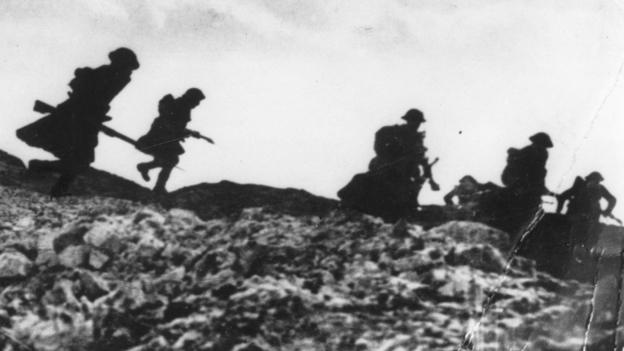WW1: Remembering the London Welsh players who fell
- Published
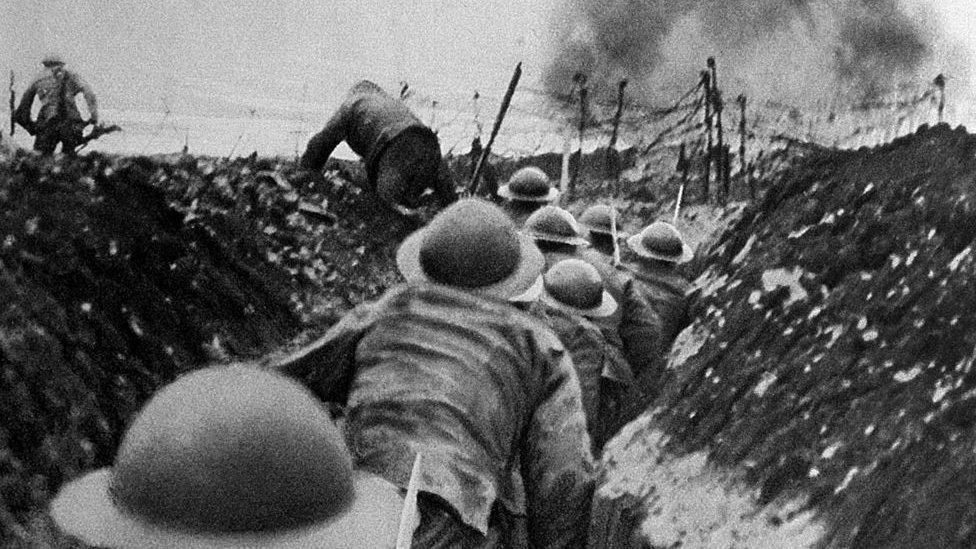
Somme 1916: The battle claimed the lives of eight London Welsh players
They were teachers, doctors, lawyers and even a farmer - and they all had two things in common.
They all played rugby for a club with proud links to Wales - and they all made the ultimate sacrifice in World War One.
These were the 23 men of the London Welsh Rugby Club whose lives were claimed by the 1914-18 Great War.
A memorial is now being dedicated to them at the club in Richmond.
"I'm immensely proud of this club - a wonderful, wonderful club, that has a wonderful history," said Terwyn Williams, one of the London Welsh club's honoured life members.
The former club kitman, from Carmarthenshire, has been one of those behind the new plaque to remember the players the club lost.
"The idea came after we held a memorial service a couple of years ago, and afterwards, people were talking more about the ceremony than the game," said Mr Williams.
"So we decided to do something more to remember those who had died."
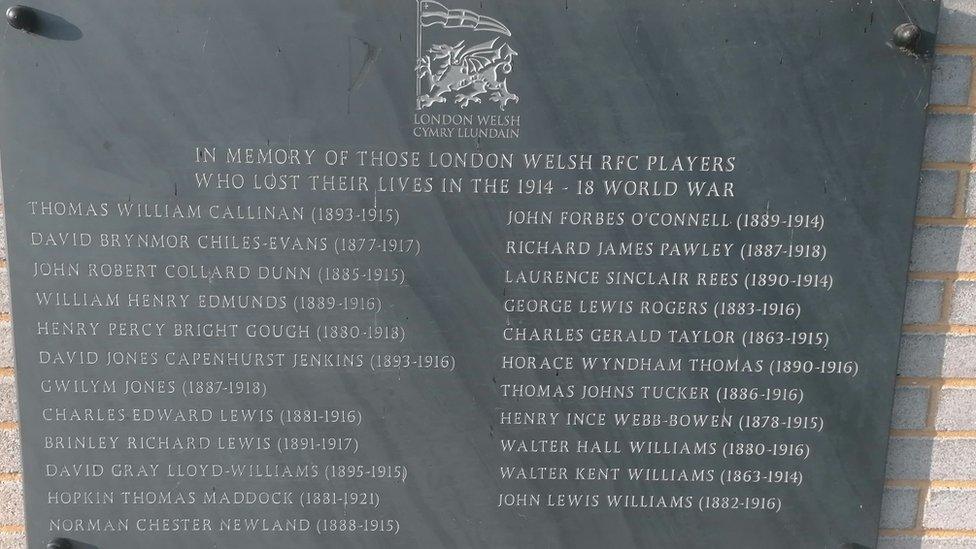
The plaque commemorating the club's players lost in World War One is being officially unveiled
Of the 23 names listed at the London Welsh Old Deer Park ground, seven were killed outright in the bloody Somme offensive of 1916.
The campaign in northern France lasted for nearly five months, and claimed more than a million lives.
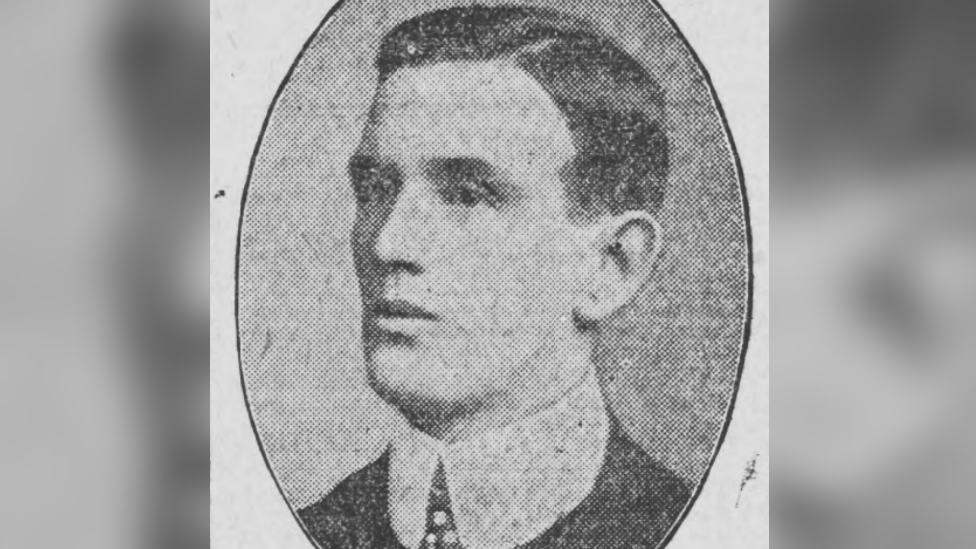
Hop Maddock died in December 1921 from wounds inflicted in the Somme
An eighth player - Welsh international winger Hopkin 'Hop' Thomas Maddock died almost exactly a century ago, from injuries he sustained in the Somme as a lieutenant in the Machine Gun Corps.
He played for Wales at six internationals, and scored 170 tries during his London Welsh career.
His team played their last game of 1921 wearing black armbands in his memory.
But Maddock was not the only Welsh international to be killed during the war.
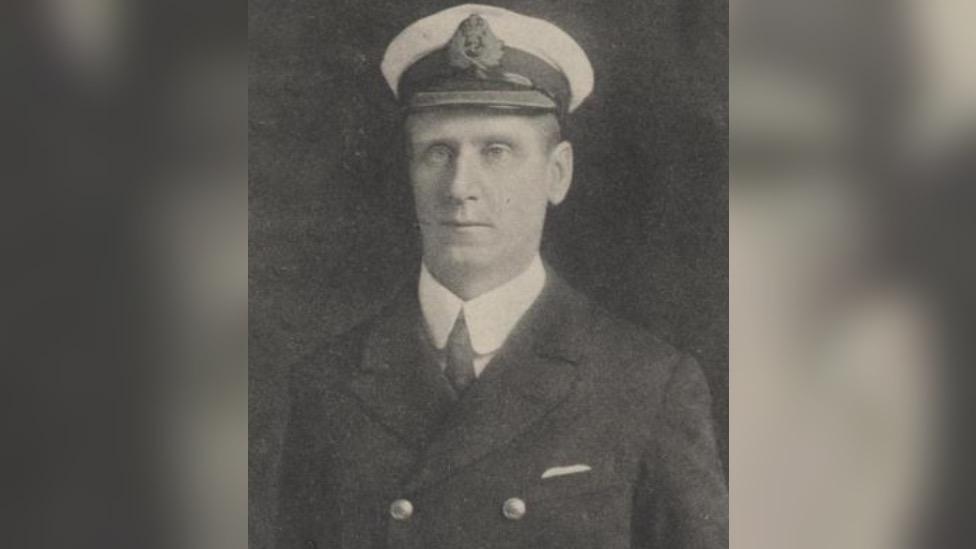
Engineer Captain Charles Gerald Taylor was the first of Wales' capped players to be killed in action in WW1
The first of 13 capped Wales players to lose their lives in the conflict was Charles Gerald Taylor, when the HMS Tiger was hit by a shell during the Battle of Dogger Bank in 1915.
He was Engineer-Captain on the Royal Navy battlecruiser when it was hit, and killed instantly.
At the age of 51, he was one of the oldest rugby internationals to die in the conflict. From Ruabon, Wrexham, he was also a member of the very first London Welsh team, when they met in October 1885 as a club for Welsh 'exiles' living in London.
Altogether five Welsh capped players from the London club died in the war, including three-times Triple Crown winner 'Johnny' John Lewis Williams.
He was described as a "universal crowd favourite" in a golden age, who played more than 300 first class games.
'Come on boys, we've got 'em beat'
He died of wounds five days after an attempt to take Mametz Wood in the Somme, while a captain in the 16th Battalion, Welsh Regiment.
Pentyrch's Horace 'Wyndham' Thomas was "one of the most exciting and intuitive attacking outside halfs of his time", according to Alan Radford, who painstakingly researched the names of the club's fallen.
He had won only two caps for Wales when he died, as second lieutenant in the Rifle Brigade at Guillemort, aged 26. It was said his final words were: "Come on boys, we've got 'em beat".
His body was never recovered, and he is commemorated at the Thiepval Memorial.
The fifth of the international players to die was Major Brinley Richard Lewis, who won two caps for Wales and was known as Bryn Lewis. Born in Pontardawe, he later went to Cambridge University where he gained three 'Blues' in varsity games, before being selected for Wales, as well as playing for London Welsh and Barbarians.
He died in Ypres in 1917, when an enemy shell hit the mess hall where Lewis was sitting.
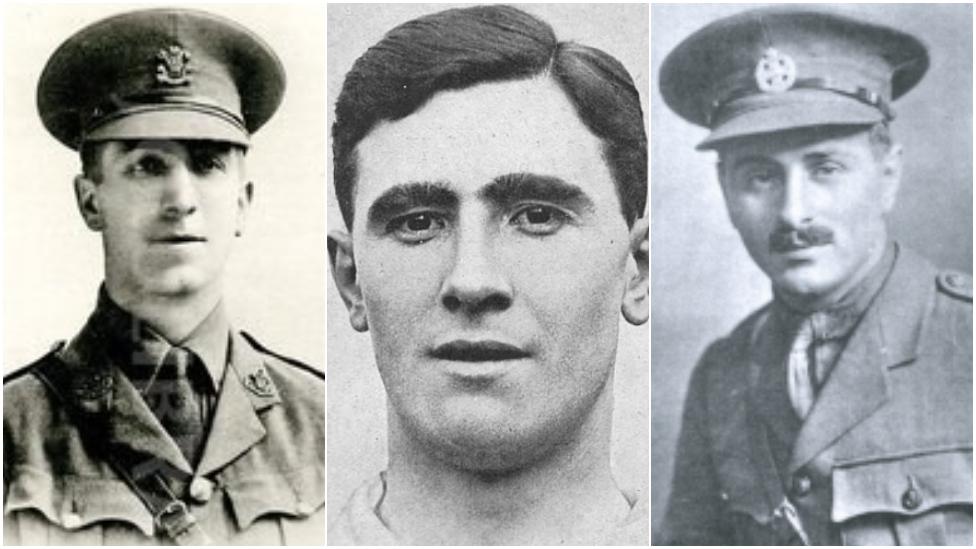
John Williams, Bryn Lewis and Horace Thomas were also London Welsh internationals who died in the Great War
But the service to officially unveil the plaque commemorating those who died at the club is not just about the Welsh international players - it marks the loss to the club of all the players who never returned from the war.
Among the 23, there was Sgt David Jones Capenhurst Jenkins, from Llandovery in Carmarthenshire.
He was 22 when he was killed in action in an area north of Hooge in Belgium.
He played rugby for Downing College at Cambridge, as well as London Welsh, before leaving to become a farmer in Canada.
It was there he enlisted in the army in Saskatchewen, and embarked for France in early 1915.
Tragically, he was one of three brothers in his family to die in World War One.
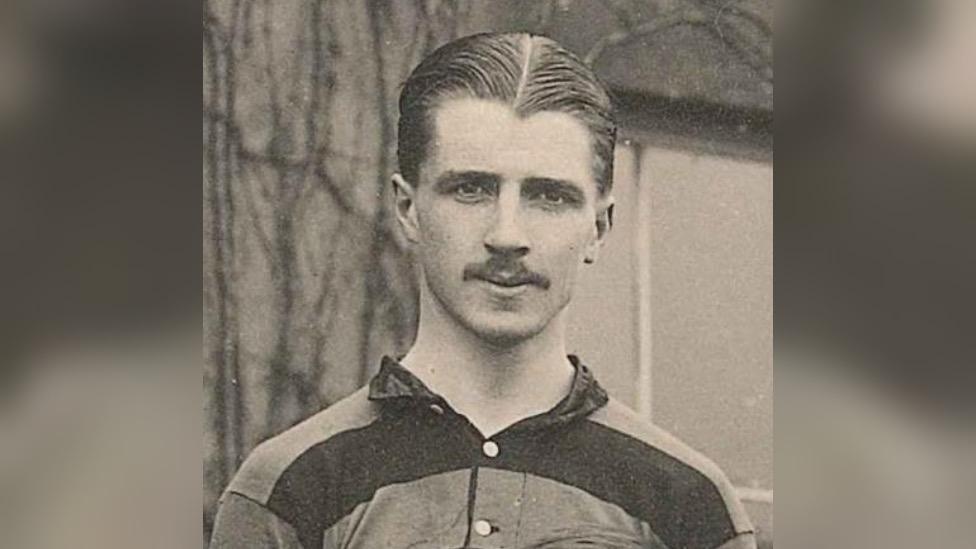
Sgt David Jones Capenhurst Jenkins was one of three brothers all killed in the war
Second lieutenant David Gray Lloyd-Williams was one of the youngest London Welsh players to be killed.
According to the then Liverpool Daily Post newspaper, he was reported missing in the Dardanelles on August 10, 1915, with the King's Own Royal Lancaster Regiment.
Aged 20, he was one of 43,000 British servicemen killed in the Gallipoli campaign in Turkey.
Private George Lewis Rogers, from Llanelly, Monmouthshire, survived landing on the Gallipoli peninsula - and the months of fighting before allied forces were evacuated in 1916.
However, he was not to live through the Somme. He died aged 34, just two weeks before the end of the battle after being wounded at Albert and Le Transloy.
The ceremony on Saturday to remember those who fell in the conflict will be represented by members of 1st Battalion Welsh Guards, the London Welsh Rugby Club Choir, and Swansea-born MP Julian Lewis, who chairs Parliament's Intelligence and Security Committee.
"It will be an emotional day for us all here," added Terwyn Williams.
- Published15 August 2014
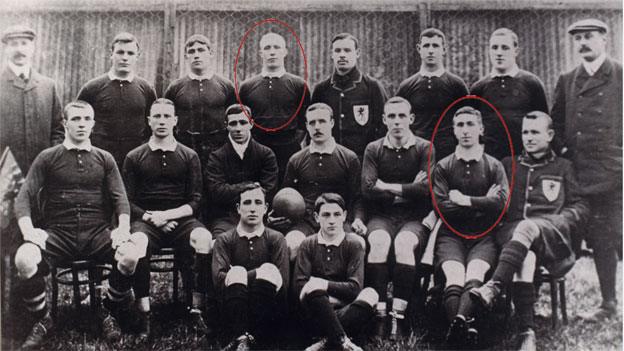
- Published4 August 2014
